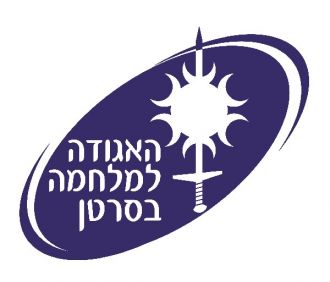This is what the director of the National Cancer Registry at the Ministry of Health, Dr. Micha Barhana, said, who participated in a press conference of the Cancer Society on the occasion of the knock on the door operation that will take place on 27/10 * An increase in the early detection rate of breast cancer

A consistent decrease in cancer incidence rates for women since 2002 and from 2004 also for men in the Jewish sector in Israel. These are the findings brought this week by Dr. Micha Barchana, director of the National Cancer Registry at the Ministry of Health, who presented the trends in morbidity in the last 20 years.
Barchana participated in a press conference held by the Cancer Society on the occasion of the fundraising operation Knock on the Door that will take place this Monday, October 27.
Barchana detailed the trends and explained that: "In the Jewish population in Israel, the morbidity rates of all malignant diseases have increased moderately since the beginning of the nineties, during which the morbidity rates remained stable. Since 2002, a consistent downward trend has been observed in the morbidity rates of all malignant diseases in women. In men, the moderate increase in morbidity rates continued until 2004, after which the trend became a decrease in morbidity. This trend of a decrease in morbidity rates is mainly led by the decrease observed in breast cancer in women, colon cancer in both sexes, and a decrease in the incidence rates in throat and lung cancer," explains Dr. Barchana. On the rise: prostate cancer, targeted breast cancer (that is, detected at an especially early stage) and more. "
However, not everything is rosy. The survey shows that in the Arab population in Israel, the increase in morbidity rates continued throughout the entire period, with the gap between the incidence rates in men and women being higher than those in the Jewish sector. These trends can be explained by the changes that Arab society has undergone such as a decrease in the number of births, changes in dietary patterns and other characteristics of Western societies.
Miri Ziv, CEO of the Association to Fight Cancer commented on this at the same press conference: "According to the data presented by Dr. Barchana, in recent years it is possible to see a downward trend in diseases where prevention and early diagnosis are possible, among the main issues the association deals with: lung cancer (reducing smoking), invasive breast cancer (mammography and awareness of the importance of early detection), colon cancer (occult blood test and colonoscopy) and more. We will continue and work with full vigor to continue this trend, as well as to reduce the incidence of melanoma and other types of cancer."
An increase in women's responses to early screening for breast cancer
Prof. Gadi Rennert, director of the National Program for the Early Detection of Breast Cancer, presented the program that monitors all breast examination activities in Israel, starting with the radiological diagnostic tests for the entire Israeli population, through the surgical operations, the pathological diagnosis, and up to the monitoring of the admission to the oncology institutes of women who have been diagnosed with malignancy.
"From the start of the program until today, the program has monitored about 3.6 million breast imaging tests in about 1.2 million different women, of which 38,000 tests were carried out in the mammography mobile. In 2007, 381,000 mammography tests were detected (of which 257,000 were for screening purposes - 71%), a fact that represents a continued increase in the proportion of women performing the tests. The official policy in Israel for breast cancer detection tests recommends that every woman between the ages of 50-74 be routinely examined with a mammogram once every two years. According to the program, about 75% of women in Israel aged 50-74 have performed the test in the last two years, and about 54% of the women in the target group have performed the test at least twice in the last four years. Gaps in screening response that were identified in the past between subpopulations in Israel have been reduced and the current response rates in the immigrant, ultra-Orthodox, non-Jewish populations are only about 5% lower than the response rates in the older Jews."
"The detection rate of malignancies in women scanned at the target age was 5.6 tumors per 1,000 women scanned. This rate is well within the national target set according to the expected incidence rate of breast cancer in Israel. This means that the mammography test detects tumors with the required sensitivity."

2 תגובות
Bring us numbers!!!!!!!!!!!!!!!!!!!!!!!!!!!!!!!!!!!! How many people get cancer?!?!?!!??!
Cell phone companies' crimes committed in the early 90's should be investigated.